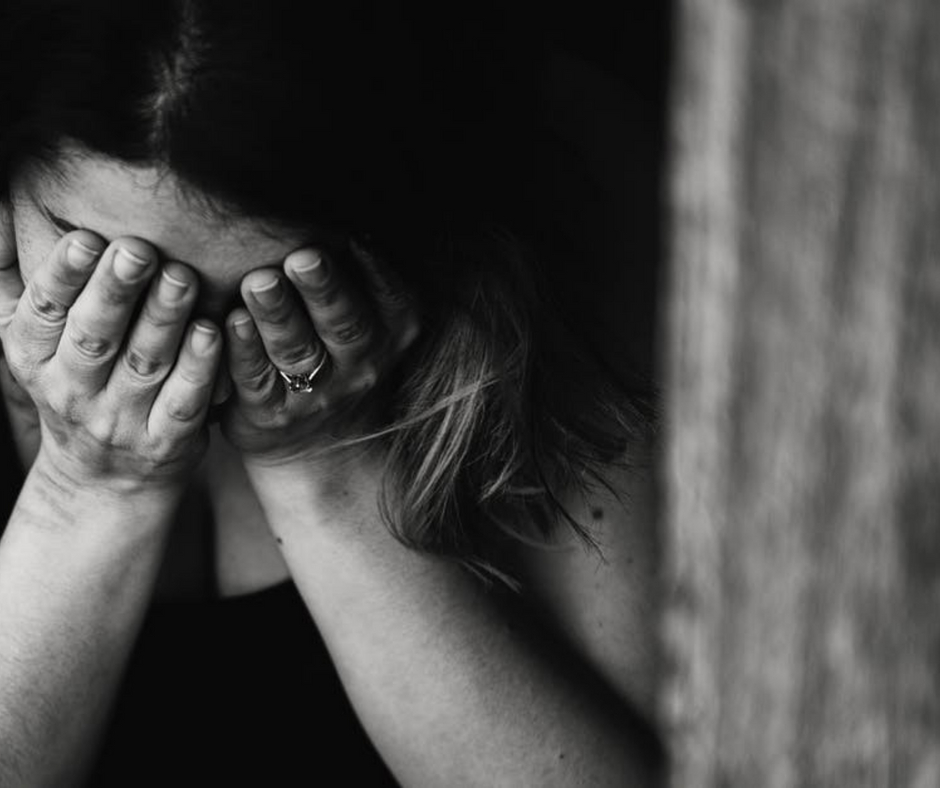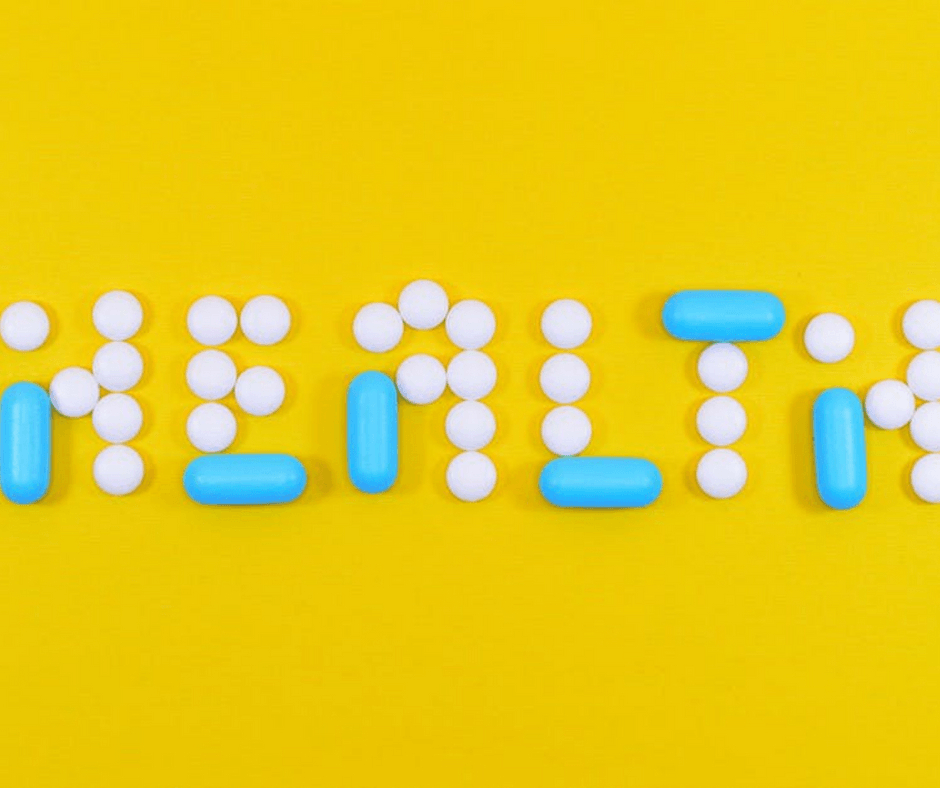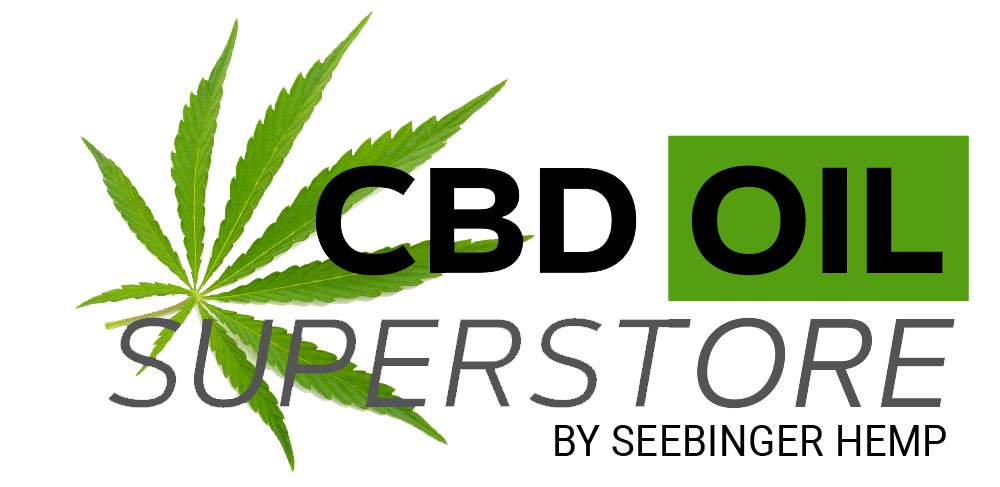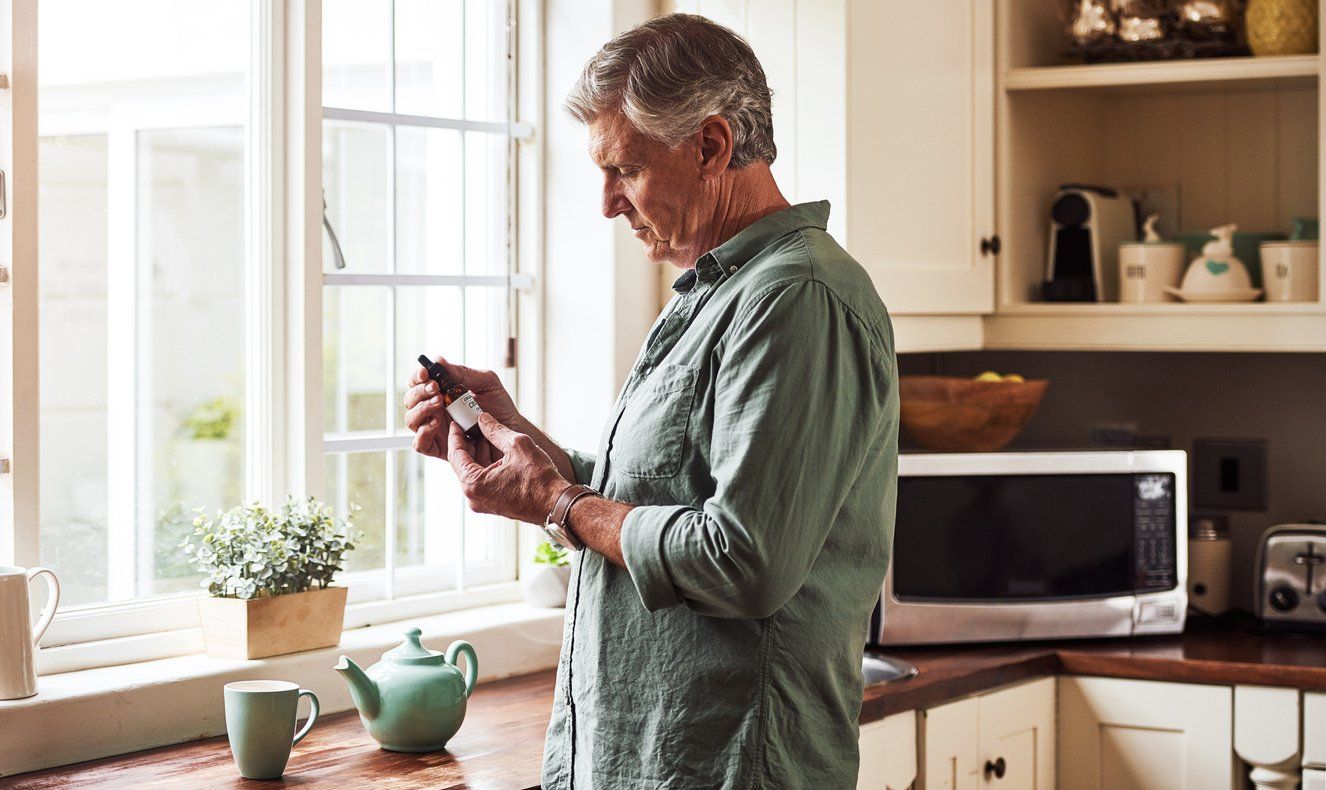Blog
Better Living with CBD without THC

What Is Emotional Wellbeing? Many people today suffer from a lack of emotional wellbeing. According to Psychology today Emotional Wellbeing - is the ability to practice stress-management techniques, be resilient, and generate the emotions that lead to good feelings. The constant barrage of negativity, financial stress, physical stress, workplace stress, and poor eating habits all wear away at the body’s ability to be resilient. Studies have shown that when a person is constantly stressed it has a weakening effect on the immune system. Cortisol levels increase which then over stimulate the adrenal glands, and they become fatigued causing additional metabolic problems including hypertension, cardiovascular disease, and strokes. Emotional wellbeing has far reaching effects. How Does Well Being Affect Mental Health? Emotional wellbeing and mental health are interrelated, and have a corollary effect. When a person suffers from poor emotional wellbeing, it is often seen in the form of poor mental health displayed as depression, anxiety, isolation, and antisocial behavior. The person displaying these tendencies has lost the ability to manage their stress, or be resilient in the face of negativity. They can no longer generate the needed emotions which lead to good feelings. This lack of well being can lead many people to depend on antidepressants, anti-anxiety medications, sedatives, or alcohol. Each person can learn new coping mechanisms, but CBD can help bridge the gap between learning those mechanisms and traditional medications. CBD is naturally high in antioxidants, cannabidiols and terpenes which increase the body’s feel good endorphins. The calming effect of cannabidiols help to ease depression, anxiety, and stress. What Activities Help Mental Health? In addition to supplementation you can improve your emotional well being by making and maintaining connections with others. Try to connect and engage with the world around you. Live productively at work, socially or both. Learn and apply new coping mechanisms. As with any medication or supplement. Consult a physician prior to beginning or ending a new medication or supplement regime.

Can CBD help skin issues? Often people with skin problems take one of few paths to fix it. Some attempt to ignore it. They hope the condition will get better by itself. Ignoring the problem often allows the conditions that caused it to proliferate and it actually gets worse. Unchecked follicular bacterial growth will only get worse and spread. Secondly, people try whatever homemade remedy a friend suggests without knowing the science. Not all homemade remedies are bad. Some are effective, but some are not and it is important to know the difference. Third, they try a non prescription over the counter medication which sometimes is just like the home remedy route - without investigating you could be misled by advertising into buying a completely useless product. Fourth buying high priced prescription medication with questionable side effects and still hope it will go away.There are many ongoing studies into the effectiveness of CBD in treating skin issues. Until recently the method used most often had been expensive prescription medications or a milder non prescription, but still expensive medications. It might be time for you to try a less expensive and more natural cure. In addition to CBD Oil’s anti inflammatory and pain relief, CBD is packed with antioxidants which have added benefits to the skin. Is CBD good for skin inflammation? Excess bacteria on the skin multiplies within the hair follicles and is the leading cause of skin inflammation. It is this inflammation which contributes to acne along with excess sebum production which is caused by hormones. Puberty creates the perfect conditions for bacterial overgrowth and acne is a common result. CBD oil works in two ways to reduce acne. First the anti-inflammatory property of CBD acts on the inflammatory cytokines directly. Inflammatory cytokines are the molecules which promote inflammation. Secondly the cannabidiol binds with receptors which prefer certain enzymes that promote inflammation. When cannabidiol is present in the body it will bind to those receptors prior to cytokines. Once the receptors bind to cannabidiol they can not bind with cytokines effectively cutting off inflammation on a molecular level. CBD also benefits the skin by reducing oil production, providing extra moisture and relieve pain and itching. Can CBD help skin issues? CBD can help with a variety of skin issues based on the aforementioned interaction in the body. Other conditions which studies have shown to improve are psoriasis, eczema, and other autoimmune related rough dry scaly patches. The CBD is absorbed easily into the skin and the additional antioxidants and fatty acids in the hemp oil actively fight the signs of aging, and improve free radical damage to the skin. As a result the skin retains more natural moisture, and is more elastic which reduces the normal sign of aging - wrinkles. When you consider all the benefits of CBD oil it is well worth trying before you consider more cost prohibitive methods with unwanted side effects. As with any routine consult with your physician prior to beginning or ending any medication or supplemental routine. When you think CBD, think CBD Superstore by Seebinger.

What Is Health? The definition of health depends on who you ask. Health can mean different things to different people. A blind person might say “I’m blind, but I am healthy.” meaning they have no other ailment, or illness. According to MedicineNet The World Health Organization (WHO) has officially defined health as 'a state of complete physical, mental, and social well-being, not merely the absence of disease or infirmity.' So does that mean nothing can be wrong with us if we want to consider ourselves ‘healthy’. If we subscribe to this narrow definition of health then probably 95% of Americans would not be healthy because of obesity, diabetes, cardiac issues, stroke, traumatic brain injury, drug addiction, lost limbs, poor vision, deafness, mental illness and social isolation. Using this interpretation we are never really ‘healthy’ but instead we are always striving to be more healthy by reducing or eliminating the things that impede our ‘complete state of well being’. This renewed focus on health has changed how we process and consume food, how we maintain physical health and even the guidelines by which the FDA determines if we have reached the healthy state or not. Are Health and Wellness the same thing? It’s no surprise that many people are confused by the terms ‘Health & Wellness’. Many think they are the same thing and use the terms interchangeably. They are in fact different. The DSST Health and Human development course differentiates the two by saying: 'Health is defined as the overall mental and physical state of a person; the absence of disease.' The National Institute of Health says there are three types of health today. 'The first is that health is the absence of any disease or impairment. The second is that health is a state that allows the individual to adequately cope with all demands of daily life (implying also the absence of disease and impairment). The third definition states that health is a state of balance, an equilibrium that an individual has established within himself and between himself and his social and physical environment.' This isn't entirely the same thing as wellness. The DSST says 'Wellness refers to the state of being in optimal mental and physical health.' Health has clear delineation and boundaries, you either are, or are not healthy, while wellness has more gray areas. Wellness is in a constant state of flux. It is something you are always trying to obtain, or work toward. What Are The Dimensions Of Wellness? It is widely accepted that there are multiple dimensions to ‘Wellness’. There are seven commonly held dimensions, but as many as twelve, depending on who you ask. The seven most commonly studied wellness dimensions are Spiritual, Physical, Emotional, Career, Intellectual, Environmental & Social. Understanding these dimensions will better help you understand why and how CBD products work. In the following weeks we will look at how CBD products can improve and enhance our everyday state of being. CBD products can be used in conjunction with, or prior to starting a prescription medicine routine. Our information is in no way meant to replace your prescribed medical treatment. Instead we only seek to educate you about less costly and more natural alternatives. As with anything - consult your physician prior to starting, or stopping any prescription, or supplemental treatments.

What is Mental Health In the previous article we learned there are both social and environmental constructs that can influence “our emotional, psychological, and social well-being” in other words our ‘mental health’ as stated in Mental Health.gov. In this article we are specifically paying attention to the social constructs. In particular we are talking about family. Family as a construct is fluid. Our idea of what constitutes a family is changing all the time. The Nuclear Family The term nuclear family was coined in 1920 by anthropologists, but the idea or construct of the nuclear family took hold in the 1960 and into the 70’s. Primarily it means mom, dad, siblings. This was quite a change from the ‘Extended Family’ which included grandparents, aunts and uncles, cousins. The nuclear family became our social construct because society decided in order to get ahead the family had to be more easily transplanted in order to seek property and promotion. It is simpler to move just the ‘nucleus’, rather than the entire traditional extended family when economic changes or opportunities occurred. Make sense right? Family Stress Affect on Adults Society did not consider the social impact of the nuclear family. An extended family is more likely to seek help from each other, pool money and resources and share emotional burdens and child rearing duties. Not to mention, it is a larger social group which humans instinctively migrate toward. As we, a society, become more ‘nuclear’ we are increasingly more isolated and forced to face stressful life events alone. All of those life stressors and problems now rest on the shoulders of one or two adults, not many as in an extended family. According to Healthline.com article Emotional Symptoms of Stress - prolonged chronic stress has been proven to lead to ‘increases in depression, anxiety, irritability, low sex drive, compulsive behavior and mood swings.’ Emotional Symptoms Of Stress All of the above symptoms; depression, anxiety, irritability, low sex drive, compulsive behavior and mood swings create even more stress for the parents, and by proximity the children within the household are more stressed. We’ll discuss the effect of stress on children in a future post. To summarize stressed children are more likely to exhibit anxiety, depression, lack social skills, and be more isolated. How To Use CBD Oil For Anxiety And Stress According to Medical News Journal News Letter written by Zanne Villines July 27, 2018 - The cannabidiol compounds found in CBD Oil have proven effective in relieving stress by binding to specialized receptors in the brain. As we have covered in previous blog post (see CBD for PTSD May 2020), these cannabidiol compounds do not create the intoxicating effects of THC, but instead stimulate the body's natural chemical reaction to mitigate and alleviate the effects of stress. Meaning adults are more relaxed, less anxious, more focused and able to think clearly. We are in no way suggesting you immediately stop any antidepressant, or other prescription medications you are currently taking. Instead talk to you physician about how CBD oil, edibles, tinctures may compliment you current routine and help you get back on the path to successful development of coping skills that will enable you to reduce your number of medications or even become prescription free. Remember, when you think CBD - think CBD-Oil-Superstore by Seebinger. We are here to help you.

CBD oil products are a good non prescription choice to stop pain because they work on the three large manifestations of how we perceive pain - acute pain, chronic inflammatory pain and neuropathic pain or nerve tissue receptor activation. What is pain and why do we need it? Pain and the intense unpleasant feeling associated with it is the body’s physical way of telling us an injury has occurred and a negative feedback reminder to not repeat what ever action caused the pain. It’s a highly effective lesson. For example, remember the last time you slammed your finger in a drawer or door? Haven't you become more aware of your hand placement when closing a door now? Inflammation pain, while not as intense as acute or chronic pain, occurs when the body responds to tissue damage by swelling or inflaming. This swelling causes rapid blood flow to the area which causes the redness and warming sensation and has a trifold purpose. First, the swelling or inflamation causes increased sensitivity at the injury site which acts as a mild reminder that an injury has occurred and the body needs time to repair. The increased sensitivity encourages the person to take it easy while injury heals. Secondly, the increased blood flow brings helpful cells to the area flooding the site with bradykinin, histamines, white blood cells and phagocytes all necessary for the body to cleanse and repair. Thirdly, the increased blood volume helps to physically flush out and dirt or debris.
You are Awesome! You are Why! You are It! Myself and our Seebinger Family appreciate You and Everyone. Best of health, Lew Seebinger
The post Friends and Family appeared first on Seebinger Hemp.

Laru Ni Hati is the newest retail location in Nob Hill (Albuquerque, NM). Please drop by at 3413 Central Ave NE, Albuquerque, NM 87106 and thank them for carrying quality products from local companies like ours. You can’t miss their …
Seebinger Hemp Available in Nob Hill Read More »
The post Seebinger Hemp Available in Nob Hill appeared first on Seebinger Hemp.
Recent Posts

What Is Emotional Wellbeing? Many people today suffer from a lack of emotional wellbeing. According to Psychology today Emotional Wellbeing - is the ability to practice stress-management techniques, be resilient, and generate the emotions that lead to good feelings. The constant barrage of negativity, financial stress, physical stress, workplace stress, and poor eating habits all wear away at the body’s ability to be resilient. Studies have shown that when a person is constantly stressed it has a weakening effect on the immune system. Cortisol levels increase which then over stimulate the adrenal glands, and they become fatigued causing additional metabolic problems including hypertension, cardiovascular disease, and strokes. Emotional wellbeing has far reaching effects. How Does Well Being Affect Mental Health? Emotional wellbeing and mental health are interrelated, and have a corollary effect. When a person suffers from poor emotional wellbeing, it is often seen in the form of poor mental health displayed as depression, anxiety, isolation, and antisocial behavior. The person displaying these tendencies has lost the ability to manage their stress, or be resilient in the face of negativity. They can no longer generate the needed emotions which lead to good feelings. This lack of well being can lead many people to depend on antidepressants, anti-anxiety medications, sedatives, or alcohol. Each person can learn new coping mechanisms, but CBD can help bridge the gap between learning those mechanisms and traditional medications. CBD is naturally high in antioxidants, cannabidiols and terpenes which increase the body’s feel good endorphins. The calming effect of cannabidiols help to ease depression, anxiety, and stress. What Activities Help Mental Health? In addition to supplementation you can improve your emotional well being by making and maintaining connections with others. Try to connect and engage with the world around you. Live productively at work, socially or both. Learn and apply new coping mechanisms. As with any medication or supplement. Consult a physician prior to beginning or ending a new medication or supplement regime.

Can CBD help skin issues? Often people with skin problems take one of few paths to fix it. Some attempt to ignore it. They hope the condition will get better by itself. Ignoring the problem often allows the conditions that caused it to proliferate and it actually gets worse. Unchecked follicular bacterial growth will only get worse and spread. Secondly, people try whatever homemade remedy a friend suggests without knowing the science. Not all homemade remedies are bad. Some are effective, but some are not and it is important to know the difference. Third, they try a non prescription over the counter medication which sometimes is just like the home remedy route - without investigating you could be misled by advertising into buying a completely useless product. Fourth buying high priced prescription medication with questionable side effects and still hope it will go away.There are many ongoing studies into the effectiveness of CBD in treating skin issues. Until recently the method used most often had been expensive prescription medications or a milder non prescription, but still expensive medications. It might be time for you to try a less expensive and more natural cure. In addition to CBD Oil’s anti inflammatory and pain relief, CBD is packed with antioxidants which have added benefits to the skin. Is CBD good for skin inflammation? Excess bacteria on the skin multiplies within the hair follicles and is the leading cause of skin inflammation. It is this inflammation which contributes to acne along with excess sebum production which is caused by hormones. Puberty creates the perfect conditions for bacterial overgrowth and acne is a common result. CBD oil works in two ways to reduce acne. First the anti-inflammatory property of CBD acts on the inflammatory cytokines directly. Inflammatory cytokines are the molecules which promote inflammation. Secondly the cannabidiol binds with receptors which prefer certain enzymes that promote inflammation. When cannabidiol is present in the body it will bind to those receptors prior to cytokines. Once the receptors bind to cannabidiol they can not bind with cytokines effectively cutting off inflammation on a molecular level. CBD also benefits the skin by reducing oil production, providing extra moisture and relieve pain and itching. Can CBD help skin issues? CBD can help with a variety of skin issues based on the aforementioned interaction in the body. Other conditions which studies have shown to improve are psoriasis, eczema, and other autoimmune related rough dry scaly patches. The CBD is absorbed easily into the skin and the additional antioxidants and fatty acids in the hemp oil actively fight the signs of aging, and improve free radical damage to the skin. As a result the skin retains more natural moisture, and is more elastic which reduces the normal sign of aging - wrinkles. When you consider all the benefits of CBD oil it is well worth trying before you consider more cost prohibitive methods with unwanted side effects. As with any routine consult with your physician prior to beginning or ending any medication or supplemental routine. When you think CBD, think CBD Superstore by Seebinger.

What Is Health? The definition of health depends on who you ask. Health can mean different things to different people. A blind person might say “I’m blind, but I am healthy.” meaning they have no other ailment, or illness. According to MedicineNet The World Health Organization (WHO) has officially defined health as 'a state of complete physical, mental, and social well-being, not merely the absence of disease or infirmity.' So does that mean nothing can be wrong with us if we want to consider ourselves ‘healthy’. If we subscribe to this narrow definition of health then probably 95% of Americans would not be healthy because of obesity, diabetes, cardiac issues, stroke, traumatic brain injury, drug addiction, lost limbs, poor vision, deafness, mental illness and social isolation. Using this interpretation we are never really ‘healthy’ but instead we are always striving to be more healthy by reducing or eliminating the things that impede our ‘complete state of well being’. This renewed focus on health has changed how we process and consume food, how we maintain physical health and even the guidelines by which the FDA determines if we have reached the healthy state or not. Are Health and Wellness the same thing? It’s no surprise that many people are confused by the terms ‘Health & Wellness’. Many think they are the same thing and use the terms interchangeably. They are in fact different. The DSST Health and Human development course differentiates the two by saying: 'Health is defined as the overall mental and physical state of a person; the absence of disease.' The National Institute of Health says there are three types of health today. 'The first is that health is the absence of any disease or impairment. The second is that health is a state that allows the individual to adequately cope with all demands of daily life (implying also the absence of disease and impairment). The third definition states that health is a state of balance, an equilibrium that an individual has established within himself and between himself and his social and physical environment.' This isn't entirely the same thing as wellness. The DSST says 'Wellness refers to the state of being in optimal mental and physical health.' Health has clear delineation and boundaries, you either are, or are not healthy, while wellness has more gray areas. Wellness is in a constant state of flux. It is something you are always trying to obtain, or work toward. What Are The Dimensions Of Wellness? It is widely accepted that there are multiple dimensions to ‘Wellness’. There are seven commonly held dimensions, but as many as twelve, depending on who you ask. The seven most commonly studied wellness dimensions are Spiritual, Physical, Emotional, Career, Intellectual, Environmental & Social. Understanding these dimensions will better help you understand why and how CBD products work. In the following weeks we will look at how CBD products can improve and enhance our everyday state of being. CBD products can be used in conjunction with, or prior to starting a prescription medicine routine. Our information is in no way meant to replace your prescribed medical treatment. Instead we only seek to educate you about less costly and more natural alternatives. As with anything - consult your physician prior to starting, or stopping any prescription, or supplemental treatments.



